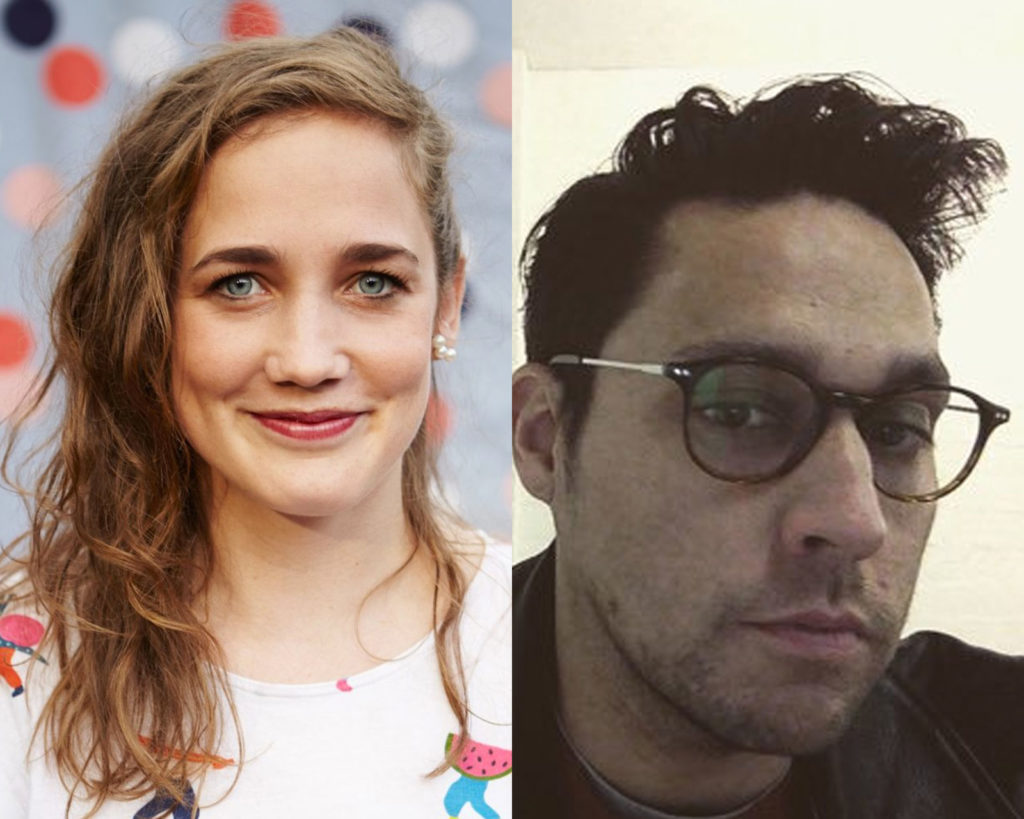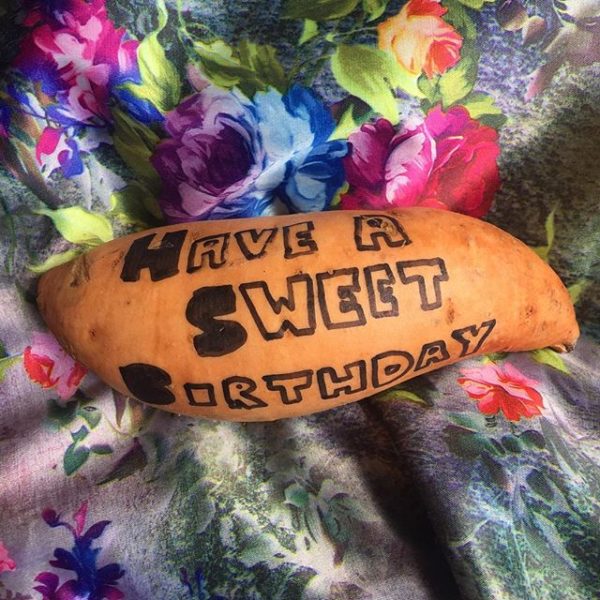Emily Naismith and Ben Birchall co-host Ingredipedia – a food podcast in which they choose one ingredient and compete to tell the most interesting facts about it. They share their thoughts on listener curiosity, the challenge to be noticed by Americans, and the mostly good – sometimes terrifying – nature of feedback.

What piece of audio has had the most profound effect on you – as a listener, as an audio maker or both?
Emily Naismith: Emotionally, my favourite piece of audio would be David Rakoff’s ‘Oh! The Places You Will Not Go‘, which I heard on This American Life. It’s a take on Kafka’s Metamorphosis that’s beautifully written and told.
Ben Birchall: As much as it’s an obvious one, Serial really woke me up to not only how long form storytelling had a place in our fast-paced digital world, but also how there is still a place to share and create communities around story. I organised an event for the last episode of Season One called Breakfast Serial. We filled a bar at 8am with 100 people sitting silently, eating cereal and listening to the podcast. It was pretty amazing.
Where did the idea for Ingredipedia come from?
EN: We’re both pretty obsessed with food, so we always knew the podcast was going to be around that. The format came to us because I wanted to do something that would be fun, but not take up too much time, and we can do our research independently. It’s also something that’s motivating – which is where the competition element comes in.
BB: We were also pretty obsessed with the new Gimlet podcasts – Reply All and Mystery Show – that were coming out at the time. We were talking about podcasts so much that it made sense to make one.
What’s your favourite part of making Ingredipedia?
EN: Getting comments – or sweet potatoes – from listeners. Someone posted me a sweet potato, with ‘have a sweet birthday’ written on it in permanent marker, after our potato episode. Someone also sent me capsicum seeds in the mail after I declared my hatred of the vegetable.
BB: It gives you license to do things like eat pasta for breakfast or make coriander infused gin gimlets … for breakfast.

What’s the hardest part of producing Ingredipedia?
EN: When we choose a tricky ingredient and there’s only a few interesting things about it, but we have to find six. We got there in the end, rhubarb!
BB: On the other side, sometimes it’s difficult to mine through the information out there to identify something surprising that hasn’t been covered before. Sometimes it’s about mining through our own lives a little, or inventing an Egg Flip cocktail.
Sometimes it’s difficult to mine through the information out there to identify something surprising that hasn’t been covered before.
What’s the best thing about working with sound?
EN: I find that stories stay with you more when you’re only listening to them – not watching and listening. It may be because you’re actually imagining the story in your mind, which brings it to life a bit more.
BB: There’s an intimacy to sound that lets you really inhabit a story. I worked in community radio for a few years, and loved the neighbourhood vibe of that, but podcasts take it up a notch again. I hope we sound like two mates having a friendly argument that you can be part of.
What’s the best (or worst) advice you’ve received about podcasting?
EN: We were reviewed by another Australian podcast called Listening Ahead. They told us – via public podcast shaming – we should explain the format of our show before every show so new listeners know what is happening. That was a really good point and something that was at the back of my mind, but hearing it from them kicked us into gear and now we definitely do it 50% of the time.
What has been your biggest lesson as a producer so far?
EN: That thinking about ‘why’ people are listening is important. I’ve realised that each little fact in our podcast works best if it stems from a question that people might have themselves. Or if they don’t have a question, framing the segment as a question – so they can go on a journey with you.
BB: Don’t let Emily leave the studio until you’ve checked all the files. There may be a lost Lemon episode with corrupted sound on a hard drive someplace.
Do you interact with your audience, or receive feedback or criticism about your work?
EN: Yes, our listeners can vote after each episode on whose facts they liked the best. People vote by liking either the pink photo of the ingredient (me) or the yellow photo (Ben). I like winning, so it’s good when people side with me and comment about my stories and facts.
BB: We really opened ourselves up to feedback as part of our original plan. Sometimes that is terrifying. Usually it is good.
If you could go out to dinner with any audio maker, who would it be – and what would you talk about?
EN: I actually went out to dinner with Starlee Kine, so I’ve pretty much peaked. I showed her pictures of my dog.
BB: Um … I was at that dinner too. Also I got to hang out with Hrishikesh Hirway from Song Exploder and West Wing Weekly last year. He’s making two very different, very amazing podcasts at the moment. [Ed.: At the time of publishing, he’s up to three (and counting).]
What are you listening to at the moment?
EN: Download This Show, The Unbearable Lightness of Being Hungry, What Would a Feminist Do? and Hamish and Andy (I know, but I am not ashamed to say I freaking love them).
BB: Here’s the Thing with Alec Baldwin, Future Sandwich, West Wing Weekly and Homecoming (OMG make another season of that already!).
What’s your favourite Australian podcast, and why?
EN: It changes all the time, but I’d say value-wise it’s The Unbearable Lightness of Being Hungry. Lee Tran Lam has a great interview style and technique. I’ve learnt so much about the Australian hospitality industry through her podcast.
BB: My friend Tommy makes a great podcast called Future Sandwich where he takes a trend (cars, advertising, cities, etc.) and does a bit of future gazing. He talks to smart people and tells stories really well.
I think it’s hard for Australian podcasts to get noticed by international audiences … so it’s great that the audio industry in Australia has a strong community around it, and supports itself.
What do you think is unique about Australian audio?
EN: I think it’s hard for Australian podcasts to get noticed by international audiences. Ira Glass himself said it’s hard for him to listen to any podcasts that aren’t American. So it’s great that the audio industry in Australia has a strong community around it, and supports itself.
BB: I think Australians by nature are more suited to the laconic, intimate nature of podcasting. A lot of US podcasts feel like they’re shouting in your earholes. Not as many Aussie podcasts do that.
What’s next for you as producers?
EN: I really want to do a whole episode on verjuice, and interview my hero Maggie Beer.
BB: Learning a whole lot more useless information about food, and fighting with Emily about it.